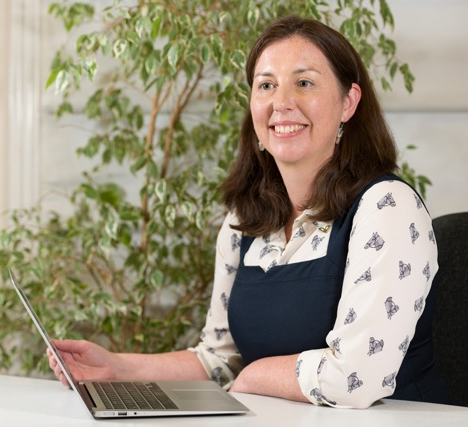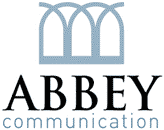|

|
|
Alex Morgan
Director at Abbey Communication
|
Alex, what are the necessary competences to teach Business English?
Firstly we are trainers and facilitators rather than teachers. We use professional training and coaching skills to encourage the maximum input from the course participant. We understand the business environment in which the participant operates and what their language needs are in relation to that. We are also professionals in the field of management development and business training, so we combine this expertise with our language development knowledge, this combined with a full immersion experience develops language skills faster than anything else we know.
When teaching business English to people, do your try and have all the HR people (for example) meeting in the same room, or do you vary the disciplines? Do students need to have a knowledge of specialised vocabulary (e.g. finance) or do they learn it from you?
Participants usually opt for 1:1 or group courses, or a combination of both. Groups are always very small i.e. a maximum of 4 people. When working in a group we usually match clients based on language level, rather than professional background, because sharing different experiences is very useful for language development. Trying to explain what you do, to someone who is not familiar with your field is a language challenge in itself, and provides an excellent opportunity to hone your message! We have experts from all disciplines on the team, so the 1:1 sessions are usually where the language for their specific work area is covered. We are able to develop the vocabulary required for all business disciplines.
What is the difference between teaching general English and teaching business English? People spend years learning and practicing a new language, do you use a special method to teach people so quickly?
Business English is the language required to function capably in one’s job and profession. Clearly there are many overlaps with General English, for example when socialising after work, making conversation at conferences, dinner table conversation etc. This is why it’s important to have a full immersion experience, where the participant stays with a host family every evening. This way they are also developing their social and general English too. Our method is very focused on the participants needs, and each course is designed to meet their personal needs, we work with what they already know, and build on that, to create confident communicators quickly. We work with “frameworks” which provide the catalyst for conversation, and then give feedback and further development based on what the participant is able to produce in that context. Every session results in consolidating what language the participant already has, and adding layers of new vocabulary, phrases and expressions which can be used in the same context. The method gives clients confidence and a broader language base immediately.
Why is the method so effective? How does it fit with the human learning process?
We all know that you have to put into practice what you’ve learned as soon as possible in order for it to “stick”. Our method is focused on language production, we see what language the participant can produce and add layers that they can re-use immediately.
We also help them focus on the language that they really need for their working lives, and language that will be useful to them immediately. That way it is recycled very quickly and “sticks” immediately.
The feedback we provide to the course participant is usually in “blocks” of language – words or phrases that regularly go together, rather than individual pieces of vocabulary. The blocks of language are easier to remember in the context.
How much can a person learn in a week? How long do students normally stay?
Many of our course participants come for 1 week, some come for 2 and our Japanese clients come for longer, sometimes up to 6 weeks. The clients who stay longer tend to have more in depth language and cultural appreciation objectives.
A great deal can be achieved in just one week, for example we can help a lower-intermediate participant deliver a very effective presentation, lead a meeting, participate in a negotiation and build confidence in social situations. In an immersion situation the participant is surrounded by the target language 24/7, which “tunes” their ear in, and they become much more competent listeners and their understanding increases as a consequence.
I have noticed that you are based in a small country town, and that you encourage your students to stay with host families. Are ‘business skills’ a criteria in selecting the host families? Do you try to match students and host families with similar interests?
We are based in Malmesbury, a small and beautiful town, based in the Cotswolds. The Cotswolds is a range of hills in the south west of England, and stretches from Bath up to Cheltenham and on towards Warwick. The towns and villages in the area are very typically English in their look and atmosphere. Malmesbury also has a very strong community and provides a genuinely “English” experience.
Our host families are all known to us personally and most work in business or corporate environments, or are retired from active business lives. We know their interests and professional backgrounds and we match the participants accordingly.
I realise you stress the cross-cultural aspects of learning English. Are most of your students European or do they come from further afield? Are their cross-cultural experiences similar or do they vary quite widely?
We have clients both from Europe and Japan. There are many interesting exchanges during the group sessions where participants compare their cultural contexts. We facilitate these sensitively and the discussions are always fruitful. We also provide the British cultural context, as many of our participants are interested in cultural differences. Most clients work for international businesses, so have a great deal of experience to share with us. A lot of our clients work for organisations that are led from a different country to the one in which they live, so they often have to juggle many cultural expectations, both national and organisational.
Is it possible to learn English without the cultural context?
Yes, it is possible to learn a foreign language in your own environment; in fact this is how most of us do learn a language, either at school or in private language lessons. This is still an excellent way to progress.
However a full immersion experience helps you experience how English is used in real life, rather than just in a classroom or text book. The cultural context also gives you some insight into the values of that culture and as a consequence can help you identify what is important to others in communication and business practice.
Alex, I understand that many global organisations send their staff to Abbey Communication for training, but I wondered if you also have students from smaller organisations hoping to gain a share of the English market and possibly even entrepreneurs with a new business venture.
Yes, we have all kinds of clients. You are right that many of our clients come from global corporations, but we also have individuals who are sponsoring themselves (often in the context of trying to achieve a career change), and we have entrepreneurs and small business owners and staff who are wanting to use English in their sales process.
What is the range of age and business background of your clients? Are they in the management training programme or are they already heads of department or even CEO’s?
Again, we have all kinds of participants, ranging from those in their mid 20s on graduate training programmes, to senior managers, directors and CEO’s. As we focus on an individual’s specific needs we are able to accommodate people at all levels in an organisation.
Are business courses also a valuable networking tool with students keeping in touch afterwards? Do you find that the same students will return for a second or third course? Do many people combine time at your school with a holiday in the UK, possibly visiting London, Oxford or Bristol?
Yes many stay in touch afterwards, though as discussed earlier our groups are small, so the participants benefit from an intensive training experience. One of our 2014 plans is to create a LinkedIn group of our past participants so people can continue to “meet” and share, and develop their language skills. We are very proud to say we’ve had many returners and hope to see more in 2014.
Malmesbury is ideally placed to go to cities like London, Oxford, Bristol, Bath, and Cardiff for the day or the weekend. Some of our Japanese clients even take a Friday night flight from Bristol to Edinburgh to check out the whiskey! Of course the beautiful Cotswolds is right on our doorstep too.
Alex, what do you find most satisfying about the experience of teaching English?
For me personally, it is watching clients grow in confidence before our very eyes, and of course being lucky enough to meet new people from different countries every week. I am also very proud of our team and love to see them enjoy their work with really interesting clients.
Do you have any plans for the future that you would like to share with us?
One of our most important strategies for 2014 is to extend our reach into countries and companies that don’t know Abbey Communication yet.
We are very interested in building relationships in Belgium with international companies and colleagues who do similar work to us.
We are also developing a cross-cultural communication tool, which will be launched this year, and designing more courses aimed at improving communication in an international context.
| Short Biography |
|
Alex Morgan has over 15 years' experience in HR, Leadership & Management Development, in industry, the health service and pharmaceuticals.
She brings this wealth of experience into the language immersion arena, and creates real value added training contributing to both the professional and language development of the individual.
She has a European Business Degree and a Post Graduate Certificate in Education, is a Chartered Member of the Institute of Personnel and Development, Certificate in International Business English Training (distinction), and a Masters in Management.
Alex is also an executive coach for international executives and a leadership development expert.
She is a member of both the British Institute of Learning and Development and a Fellow of the International Management Centres Association (FIMCA).
Alex has also lived and worked in Germany and Belgium and has worked with many international colleagues. Alex enjoys living locally to Abbey Communication in Malmesbury with her husband and two daughters.
Contact details Alex Morgan Alex Morgan
Director of Abbey Communication
email: english@abbeycommunication.com
Telephone: +44(0)1666 825060
Olivers Lane, 17 High Street, Malmesbury, Wiltshire SN16 9AF
|
REFERENCES
.png)
.png)